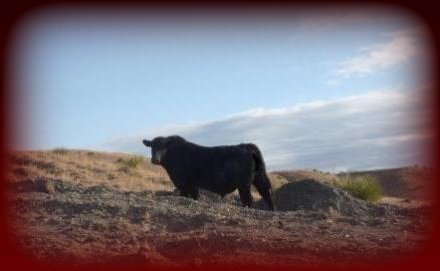| We're not going to claim our bulls have been developed on a 100% forage diet as sighted in the article. I use corn in my winter rations like everyone else does. What I will claim is our bulls have never had feed pushed on them. The rations we use are formulated to grow the bulls. We feel that pushing feed on the bulls for the sake of a big number to print in a catalog only looks good on paper. It does nothing to add to soundness, fertility, or longevity. When you wean a critter at 7 months old and put him on a high grain diet to make him weigh 1300 lbs as fast as he can what is the next step for him? Turn him out on grass? The bulls aren't now, nor have they ever been overfed or overconditioned. They will hit the sale ring in a BCS 6 and will be that way when you gather them in the fall. | 


















